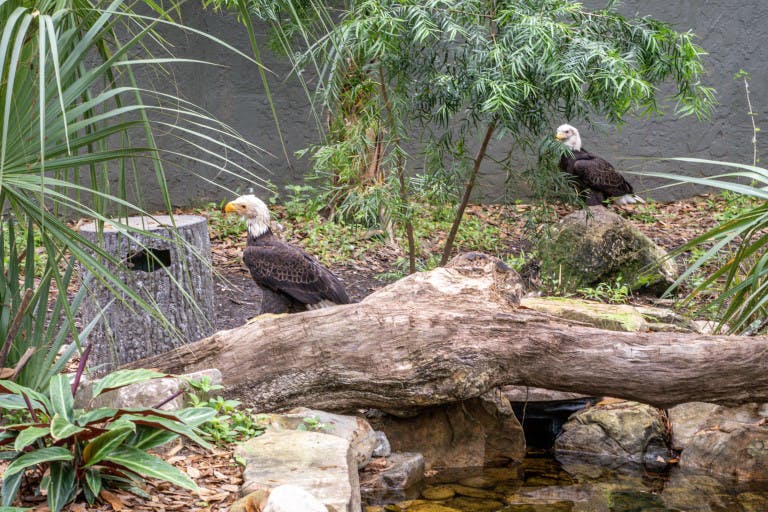The Central Florida Zoo & Botanical Gardens is proud to welcome FAIRWINDS Credit Union as the new sponsor of the bald eagle habitat.
Seminole County Commissioner Andria Herr, Patricia Rawlings representing Seminole County Commissioner Amy Lockhart, Sanford City Manager Norton Bonaparte, Seminole County Chamber president and CEO, Rebekah Arthur, Zoo employees, and guests gathered at the bald eagle habitat for a ribbon-cutting ceremony on Monday, March 25.
FAIRWINDS has long supported the Central Florida Zoo, previously serving as sponsor of the greater one-horned rhinoceros habitat for years. Located in Sanford, FL, the Zoo is part of the economic vitality of the region.
“We’re thankful for the Central Florida Zoo & Botanical Gardens, including the resources and opportunities they provide to families and students in our communities,” said Larry Tobin, FAIRWINDS President and CEO. “The bald eagle is a national symbol of the United States, representing freedom. With our commitment to helping individuals achieve financial freedom, this is a unique opportunity for FAIRWINDS to continue to align with the Zoo and help protect this extraordinary species.”
“We're so appreciative to FAIRWINDS Credit Union for continuing their longtime support of the Zoo and its mission through sponsoring our bald eagle habitat. Our guests love the opportunity to see these majestic birds up close," said CEO Richard E. Glover, Jr. "Sponsorships like this play an important role in enabling the Zoo to fulfill its mission of conservation and education within the community."
The habitat is home to two bald eagles, Glory and Davidson. Both were injured in the wild and are unable to fly. Once endangered, bald eagles are now protected under the Endangered Species Act and have made an extraordinary comeback. They are now considered a common species but remain fiercely protected in the United States.
